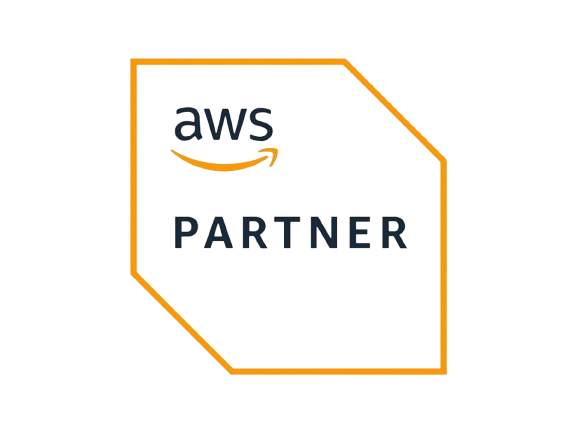Unix
While Unix systems are renowned for their stability and security, they can be complex to manage. Their reliance on command lines can be intimidating for new users, and troubleshooting issues often require deep system expertise. This is where ONQU Support comes in. They understand the intricacies of Unix and can navigate its complexities for you. Their team of experts can handle system administration tasks, troubleshoot problems, and ensure your Unix environment runs smoothly, allowing you to focus on your core business functions.

SunOS Solaris
SunOS and its successor, Solaris, were once dominant forces in the server operating system (OS) landscape. Renowned for stability, scalability, and innovative features, they powered countless businesses for decades. However, times change and both SunOS and Solaris face some hurdles in the modern world.
Pain Points
While Solaris transitioned to x86 in later versions, SPARC remains its primary architecture. This limits its compatibility with today’s hardware landscape dominated by x86-64 processors.
Although robust, the core codebase is maturing, making it less attractive to new users accustomed to cutting-edge technologies.
Cloud computing and containerisation have become major trends, and Solaris requires additional effort for integration compared to more modern OS options.
Oracle acquired Sun Microsystems in 2010, and while Solaris 11 remains available, the future roadmap is less certain compared to actively developed OSes.
Advantages
Solaris is legendary for its uptime and scalability, particularly on SPARC systems.
Security has always been a core tenet of Solaris, making it a trusted platform for sensitive data.
Solaris boasts ZFS, a powerful file system known for data integrity, self-healing capabilities, and vast storage capacity.
Many organisations still rely on SunOS and Solaris, creating a demand for skilled support.
Here's How ONQU Support Can Help
-
- Extending Legacy Infrastructure: ONQU Support's expertise can help you get the most out of your existing SunOS and Solaris environments, extending their lifespan and maximising their value.
-
- Migration Planning and Execution: If modernisation is necessary, ONQU Support can guide you through the migration process to newer OSes, ensuring minimal disruption and a smooth transition.
-
- Security Expertise: With deep knowledge of Solaris security features, ONQU Support can bolster your defences and keep your systems safe.
-
- Performance Optimisation: ONQU Support can assist in fine-tuning your SunOS and Solaris environments for optimal performance, ensuring they continue to meet your needs.
By leveraging ONQU Support’s experience, you can navigate the evolving IT landscape while still benefiting from the strengths of SunOS and Solaris. Whether you choose to extend your legacy environment or migrate to a modern platform, ONQU Support can be your trusted partner throughout the process.
HPUX
HP-UX, Hewlett Packard Enterprise’s take on the classic UNIX operating system, has been a reliable workhorse for decades. First released in 1984, it’s known for its stability and security, powering critical infrastructure in countless businesses. But like any veteran warrior, HP-UX carries the scars of battle. Let’s explore both the advantages and pain points of this enduring OS, and how ONQU Support can help you navigate them.
Advantages of HP-UX
HP-UX is renowned for its uptime and reliability. It’s built for mission-critical environments where downtime is simply not an option.
HP-UX boasts robust security features, including access control lists and a strong focus on user authentication.
HP-UX is designed for large organisations, offering features like workload management and virtualisation that streamline complex IT operations.
For decades, HP-UX has delivered consistent performance on a variety of workloads, making it a trusted platform for critical applications.
Pain Points of HP-UX
While reliable, HP-UX’s hardware base (primarily Itanium processors) is no longer cutting-edge. Finding new hardware can be challenging.
The talent pool for HP-UX administration is shrinking as newer IT professionals gravitate towards more modern systems.
Software options for HP-UX can be more limited compared to more widely used operating systems.
HP-UX is a proprietary system, tying users to HPE hardware and potentially limiting flexibility.
How ONQU Support Can Help
-
- Extending HP-UX Lifespan: ONQU Support's team of HP-UX experts can help you optimise your system and extend its useful life, maximising your return on investment.
-
- Bridging the Skill Gap: Whether you need short-term assistance or ongoing managed services, ONQU Support provides access to experienced HP-UX administrators, ensuring your system runs smoothly.
-
- Finding Solutions: ONQU Support can assist in finding compatible software solutions for your HP-UX environment, mitigating the limitations of a smaller ecosystem.
-
- Strategic Guidance: As HP-UX evolves, ONQU Support can provide expert advice on navigating the future of your IT infrastructure, including potential migration strategies.
By leveraging ONQU Support’s expertise, you can address the challenges of HP-UX ownership while still reaping the benefits of its stability and security. Whether you’re looking to extend the life of your current system or plan for the future, ONQU Support can be your trusted partner in the HP-UX landscape.


AIX
For decades, IBM’s AIX operating system has been the backbone of mission-critical applications in industries demanding high performance and reliability, such as finance, healthcare, and government. But even trusted veterans like AIX face challenges in today’s evolving IT landscape. This article explores the advantages and pain points of AIX, and how ONQU Support can help organisations navigate them.
The strengths of AIX
AIX boasts a well-deserved reputation for rock-solid stability and robust security features like Trusted AIX, making it ideal for safeguarding sensitive data.
AIX embraces open standards and integrates seamlessly with hybrid cloud environments. This allows businesses to leverage the agility and scalability of the cloud without abandoning their core AIX infrastructure.
AIX boasts a well-deserved reputation for rock-solid stability and robust security features like Trusted AIX, making it ideal for safeguarding sensitive data.
The Challenges of AIX
The talent pool for AIX administration can be limited, making it difficult to find qualified personnel for maintenance and troubleshooting.
Regular updates are crucial for maintaining security and functionality, but managing updates on complex AIX systems can be time-consuming and resource-intensive.
Integrating AIX with newer technologies and applications can require specialised expertise.
How ONQU Support Can Help
ONQU Support understands the unique needs of AIX users. Their services address the key pain points and help organisations unlock the full potential of their AIX environment:
-
- Skilled AIX Professionals: ONQU Support offers a team of certified AIX experts who can provide ongoing maintenance, troubleshooting, and security patching.
-
- Simplified Update Management: They can streamline the update process, ensuring your AIX systems remain secure and up-to-date without distracting your internal IT resources.
-
- Modernisation Expertise: ONQU Support can assist with integrating AIX with cloud-based services and modern applications, future-proofing your IT infrastructure.
By partnering with ONQU Support, organisations can leverage the strengths of AIX – stability, security, and binary compatibility – while mitigating the challenges associated with talent gaps, update management, and modernisation. This allows them to focus on core business activities with the peace of mind that their critical AIX systems are in good hands.
What are the benefits of ONQU UNIX managed services
Managed services are a popular choice for businesses looking to outsource the management and maintenance of their IT infrastructure, including Unix systems. Some of the key benefits of using UNIX managed services include:
-
- Expertise: Managed service providers specialise in Unix systems and have a team of highly skilled professionals who are dedicated to managing and maintaining them. This ensures that businesses have access to the latest technology and support without having to invest in hiring an in-house team.
-
- Regular Updates and Maintenance: With managed services, businesses can rely on regular updates and maintenance of their Unix systems, ensuring they are secure and up-to-date. This also frees up time for internal IT teams to focus on other important tasks.
-
- Cost Savings: Outsourcing Unix management can lead to significant cost savings for businesses. They do not have to invest in expensive hardware, software, or training, and can instead pay a fixed monthly fee for the managed services.
-
- 24/7 Support: Managed service providers offer round-the-clock support for Unix systems, ensuring that any issues are quickly resolved to minimize downtime. This provides peace of mind for businesses knowing their systems are being monitored and managed at all times.
-
- Access to Systems Administration, Systems Engineers, OS tuners and performance analysts
Overall, ONQU’s UNIX managed services allow businesses to focus on their core operations while leaving the management of their IT infrastructure in the hands of experts. It offers cost-effective solutions, access to expert knowledge and constant support for Unix systems.

Get in touch
Please contatct ONQU Support for a free, no obligation assessment.
